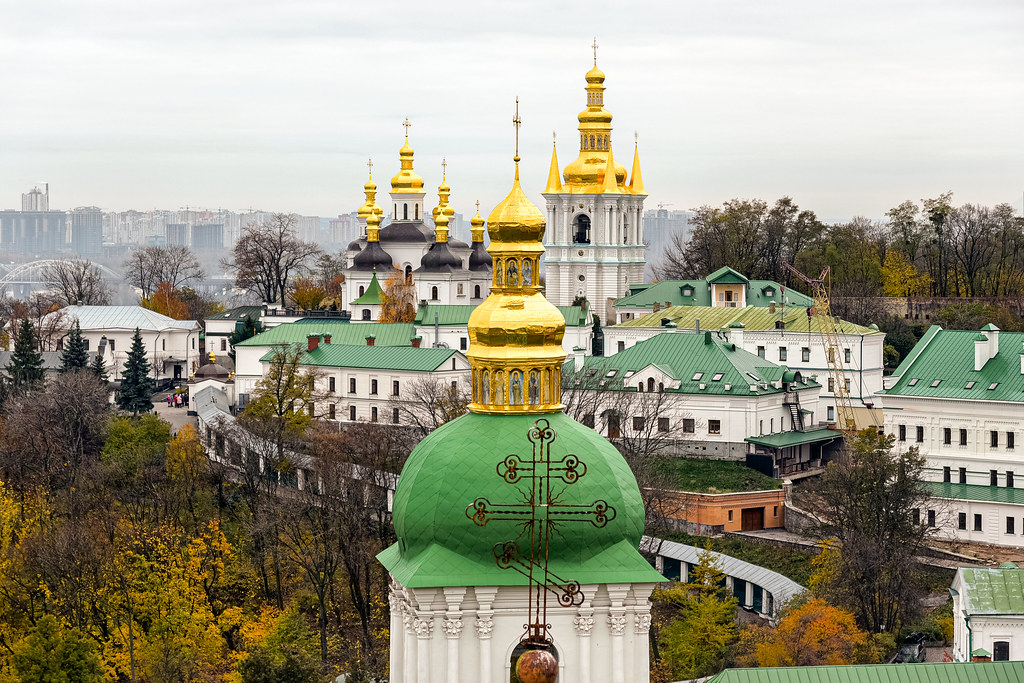
The Russian invasion of Ukraine has largely been interpreted by Western media and foreign policy experts within geopolitical as well as authoritarian frameworks, centered on its instigator Vladimir Putin. But Putin’s ruthless military strategy and designs owe much to his vison of Russia’s religious identity, writes Giles Fraser on the website Unherd (February 24). Fraser, a journalist and Church of England priest, writes that Putin’s largely unexpected westward turn from the separatist campaign in eastern Ukraine to Kyiv can be explained by his veneration of that city as the birthplace of Russian Orthodoxy under his namesake Prince Vladimir, who led a mass baptism to the faith. Putin has long cast himself as a defender of Christians throughout the world and the leader of the Third Rome. This can be seen in everything from his relentless bombing of ISIS to protect what he sees as the historic homeland of Christianity to his recent attacks on Western countries for their decadence and immorality. Putin’s defense of “Holy Russia” is “part religious project, part extension of Russian foreign policy. Speaking of Vladimir’s mass baptism, Putin explained, ‘His spiritual feat of adopting Orthodoxy predetermined the overall basis of the culture, civilization, and human values that unite the people of Russia, Ukraine, and Belarus.’ He wants to do the same again. And to do this he needs Kyiv back.”
The repercussions of Putin’s invasion for Orthodox churches in Ukraine and Russia, as well as for the diaspora, will unfold in the months ahead, but already there are signs of new divisions in the already conflicted world of Eastern Orthodoxy. Writing in Tablet (February 18), a Jewish magazine, Maggie Phillips describes how Orthodox churches in the U.S. had already felt new divisions after a segment of Ukrainian Orthodox churches switched their allegiance from the Moscow Patriarchate to the Patriarchate of Constantinople. Focusing on the Pittsburgh area, where Orthodox churches under the different jurisdictions stand cheek by jowl, Phillips finds the Ukrainian-Russian rift having more serious effects than in the more monolithic Orthodox cultures of Russia or Greece. As Orthodox priest Thomas Soroka said, “So all of a sudden, we priests find ourselves not being able necessarily to commune with one another and serve with one another.” But the more recent division has been among the growing number of converts to Orthodoxy as they learn of their churches’ divisions, Soroka added. Some of the more conservative converts have homed in on the Ukrainian-Russian split in online forums, taking sides with Russia because they say it is being antagonized for its role in revitalizing traditional social values and Christianity, according to Sarah Riccardi-Swartz of Arizona State University. [It should be noted that allegiance to the Moscow Patriarchate does not necessarily mean support for Putin and Russia in this conflict, at least in Ukraine. Metropolitan Onuphry, the leader of the Ukrainian church under Moscow, has issued a clear statement supporting Ukrainian armed forces against Russian aggression].
 Kiev: Church of the NaAvity of the Virgin (Jorge Franganillo | Flickr)
Kiev: Church of the NaAvity of the Virgin (Jorge Franganillo | Flickr)
(Unherd, https://unherd.com/2022/02/putins-spiritual-destiny/; Tablet, https://www.tabletmag.com/sections/community/articles/orthodox-church-divided-russia-ukraine)